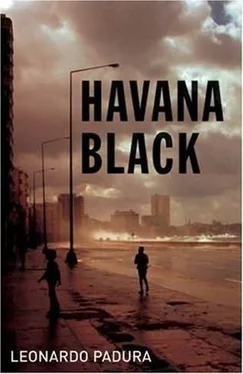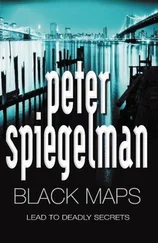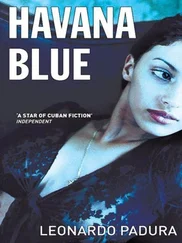Major Antonio Rangel looked the Count in the eye.
“You’ll have disappointed me…”
“Hey, it’s not that bad.”
“It is as far as I’m concerned. Get on with it, Manolo’s just arrived: and ring me if need be.”
The Count stood up and the pistol in his belt clattered to the floor. He picked it up, blew the dust off and returned it to its place.
“If I get any skinnier I’ll have to tie it to me like a dog. OK, let’s see if I sort it between today and tomorrow.”
“Off you go, Mario, before I boot you out. Hey, and listen to this: watch it with Miriam. Don’t complicate life, right?”
“Whatever you say, Chief,” and he saluted him in an almost perfect military style that would have delighted the sweet-scented Colonel Molina.
In 1979 Rolando Fermín Bodes Alvarez was sentenced to fifteen years imprisonment for prolonged embezzlement, trafficking in perks from his position in an important state body and for forging documents. The one crime the Count liked best was embezzling: he remembered the joke told by Baby-Face Miki, his old friend and bad writer, about a once well-known Cuban scribbler who’d even been given prizes for his occasional verse, a homage, salutes, celebrations and favourable opportunities, who’d been sentenced to have his hands chopped off for cooking the books and, when accused of being a poet, had been let him off because of lack of proof… Fermín had spent ten years inside – two thirds of his sentence, for good behaviour – and was barely three months out of prison. Only three months? thought the Count and it seemed too much of a coincidence: one left prison and the other came to Cuba. At the time of his arrest, Fermín Bodes had defrauded his company to the tune of one hundred and fifty thousand pesos, of which eighty thousand were confiscated from him, and he’d spent the rest, among other luxuries, on building his house (also confiscated), in distributing favours and buying an out-board motor (confiscated as well), which had never been linked to a clandestine departure from the country. Why would he want to? The trading in favours wasn’t investigated in any depth either, or at least wasn’t written up in the file Sergeant Manuel Palacios had got hold of that morning. The most extraordinary aspect of the whole case was that Fermín had quietly stashed away one hundred and fifty thousand pesos without anyone noticing. Just fucking incredible, thought the policeman as he closed the folder.
From his small office at Headquarters, the Count observed yet again the almost becalmed landscape he could see through the window. That sea of treetops, punctured by the domes of the nearby church, had always helped him think and he now needed to think as on few occasions in his career: his next step would be to question Fermín, but he foresaw how that conversation might just confirm him in the knowledge and prejudices he already possessed. Miriam’s brother would be wily enough not to disclose facts that could lead to his being implicated if it were true Miguel had returned to Cuba for something only his brother-in-law could give him or help him achieve. Of course, pondered the Count: perhaps Miguel had preferred to avoid taking any risks at the airport, despite his diplomatic and customs privileges in 1978, because what he wanted to take out of the country was possibly too big, obvious or dangerous. But what could it be? A man whose hands had touched a Matisse worth three million, exchanged for a house in Vedado, must have encountered in serial expropriations things able to change the lives of one person, if not several. The frantic flight of the Cuban bourgeoisie, forced to fulfil its wish or need to depart with just a few personal belongings, had led to the abandoning of real treasures, often hidden inside false-bottomed wardrobes or mattresses, with the hope they’d be recovered in the course of a speedy return to their lost privileges. Diamonds? Pearls? Gold and jewels? No, Miguel could have taken all that if he’d been sure he could go through a diplomat’s bureaucratically privileged channels. Something more voluminous? He couldn’t get the strange Matisse on Gerardo Gómez de la Peña’s wall out of his mind as he sought out a possible object. Yes, it could be a particularly valuable, large canvas. But where the fuck was it? The ones the Count had seen in his house didn’t rate that highly, but how could he know for sure? What if it wasn’t a canvas? Or if it were, in fact, the Matisse belonging to Gerardo Gómez de la Peña? Yes, of course it might be, thought the Count, and he thanked Candito for his new mystic fervour, which even stopped him from drinking alcohol: if they had done the usual the previous night (drink at least two pints each) his head would have exploded by now, with that plethora of possibilities lurking behind a castrated man cast out to sea – a sea he feared so much – after his head had been smashed in a drunken rage… Yes, the sea was part of the story: the sea across which Miguel could have fled with his probable booty almost safe, if he hadn’t had an irrational fear of that same ocean where he’d been flung, like a posthumous metaphor for a phobia that almost ruined him and placed him at the mercy of charitable nuns in the cold Madrid winter of 1978. The ocean that also opened its abyss between Miriam and Fermín, on the island, and Miguel, on the Florida peninsula: a sea that had claimed so many lives over thirty years and that had sicked up, perhaps in revulsion, the corpse of Miguel Forcade, the brother-in-law of ex-jailbird and former leader Rolando Fermín Bodes Alvarez, who just then stepped into his cubicle, through a door kindly opened by Sergeant Manuel Palacios, who said: “Do go in.”
Fermín was forty and showed no visible trace of having spent a quarter of his life in the prison he’d left only a few months before. His skin was still smooth, tinged with pink that reddened towards the neck, and his body was finely toned, his broad chest and muscular arms revealing an evident fondness for physical training. To the Count’s mind, his hands and manicured fingers were too exquisite, and his eyes were like his sister’s: a vague grey veering to green or blue, the same thick, curly eyelashes. He had surely been a very successful womanizer in his heyday as a wealthy man of influence, and the policeman felt his rancour and frustration rise at the sight of a man who could have done whatever he most desired in the world: go wherever, choose a really pretty, sexy woman, and say: ‘jump on board’… hoisting her on his shoulder without further ado. Besides, that pair of arms was certainly able to thwack a ball right out of the ground…
“You like playing baseball?” the Count began, staring at Fermín’s arms.
“When I was a kid, I used to play like anybody else, why?”
“Nothing in particular,” retorted the policeman, sighing wearily. “I saw on your file that you got out of jail three months ago. What were you doing in prison?”
“What do you mean?”
“I mean did you work at all.”
“I’m an architect and I worked at that almost all the time.”
“I see,” said the Count, and though he tried hard he couldn’t restrain himself. “And did you do weights in prison?”
“No, I’ve never done weights. I do circuits… You brought me in to ask that kind of question?”
The Count ignored him, as if he wasn’t concerned by Fermín’s question that was almost a carbon copy of his sister’s. He looked back out of the window and spoke from there to the gymnast architect who played baseball as a kid: he was undoubtedly a man apprenticed by the hard knocks of life now displaying the acquired skills of a porcupine: the smell of danger made him turn in upon himself, and show only his aggressive spikes.
“You know why I called you in and I hope you can help me… Your brother-in-law’s death remains a mystery to us, particularly because of one thing we can’t fathom. What did Miguel come to Cuba for? Did he come to see someone, or to reclaim something he left when he stayed over in Madrid?”
Читать дальше











